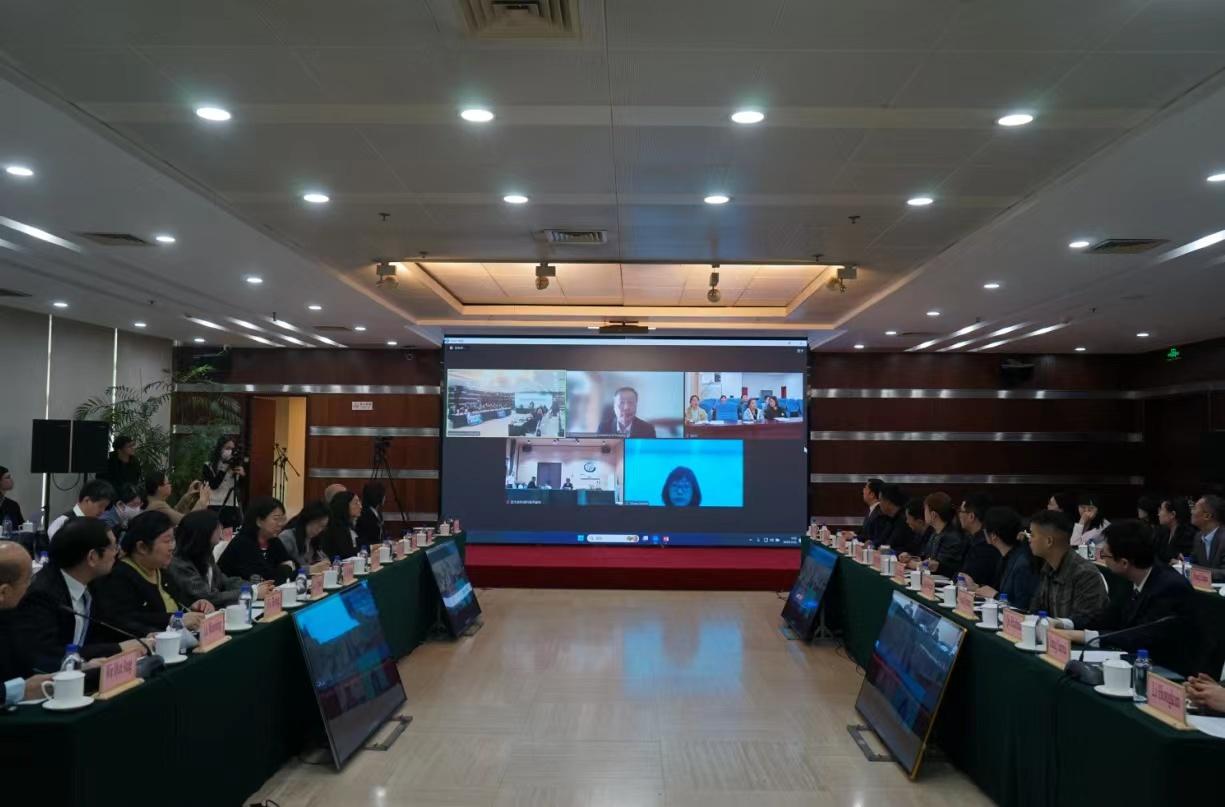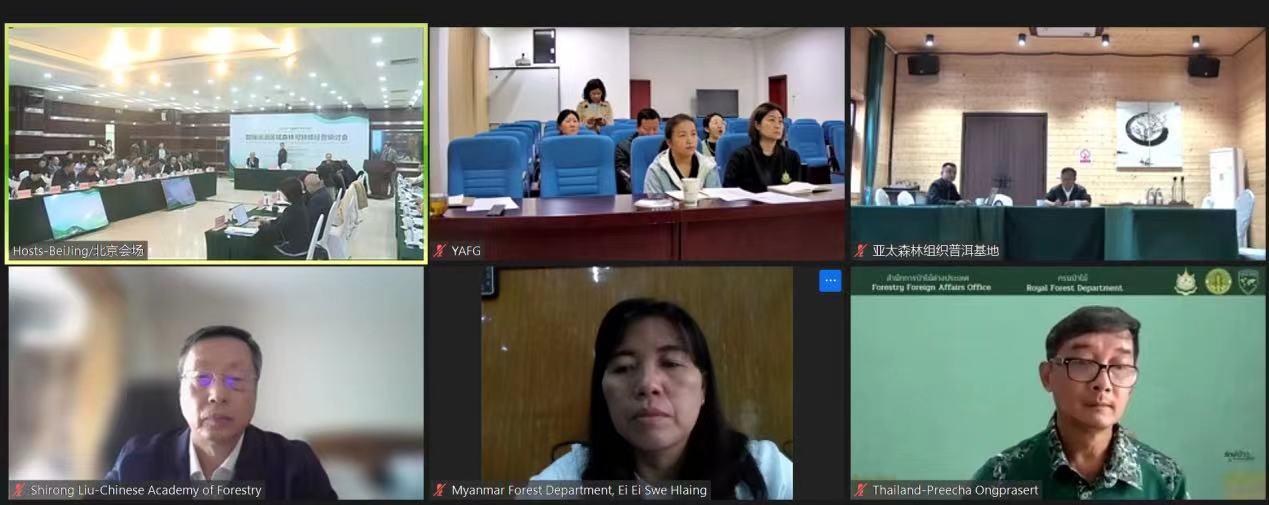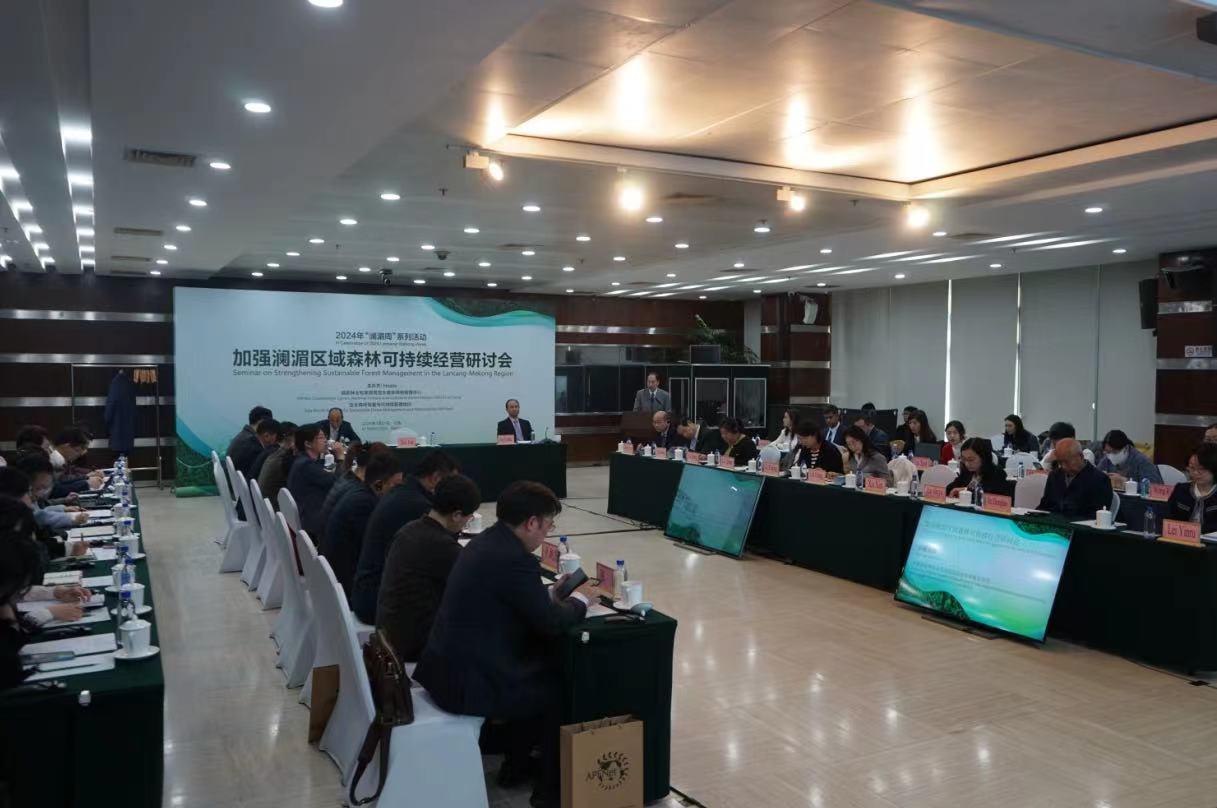

The seminar on Strengthening Sustainable Forest Management in the Lancang-Mekong Region was held online and offline in Beijing on March 21.
Co-hosted by the Asia-Pacific Forest Network Management Center of China's National Forestry and Grassland Administration and the Asia-Pacific Network for Sustainable Forest Management and Rehabilitation, the seminar attracted more than 60 participants. Attendees included representatives from forestry administrative departments, research institutes, and international organizations from China, Cambodia, Laos, Myanmar, Thailand and Vietnam.
Participants exchanged insights on a range of topics, including multifunctional forest management at state-owned forest farms, breeding and protection of rare tree species, sustainable management practices for specific areas, comprehensive planning for forest ecosystem management, urban forest management and utilization, and cooperation on national park wetlands.
Xia Jun, chief of the International Cooperation Department of the National Forestry and Grassland Administration, pointed out the seminar coincided with the 12th International Day of Forests and the 2024 Lancang-Mekong Cooperation Week. He said the seminar aimed to encourage peers from relevant economies to exchange results on forestry cooperation in the Lancang-Mekong region, share their latest forestry policies, and discuss future regional forestry cooperation.
According to Xia, China and other economies in the Lancang-Mekong Basin have engaged in extensive multilateral cooperation in forestry and grassland management. China has signed bilateral forestry cooperation agreements with Cambodia, Laos, Myanmar, and Vietnam to jointly promote forestry talent training and sustainable forest management, wildlife protection, forest product trade, border forest fire prevention and control, and the development and utilization of bamboo and rattan resources, among other cooperative efforts.
Preecha Ongprasert, director of the Forestry Foreign Affairs Office of Thailand, said the six Lancang-Mekong economies face significant challenges in terms of their forest resources. These include increased demand from industrialization, urbanization, population growth, and the uncertainties brought on by climate change, including frequent floods and droughts. He called on all member economies to strengthen forest resource management, which is crucial to the region's sustainable economic and social development.
Lu De, general secretary of the Asia-Pacific Network for Sustainable Forest Management and Rehabilitation, noted that the Lancang-Mekong region is rich in forest resources and has close cultural connections, an open and inclusive mentality, and a highly consistent political consensus. As a result, the network places great importance on and is optimistic about sustainable forest management in the region. Currently, approximately 60% of the organization's funding is allocated to projects in the region.
In his speech, Liu Shirong, an academician of the Chinese Academy of Engineering, emphasized the importance of forest protection and closer cooperation among economies in the Lancang-Mekong region. He suggested enhancing the region's capabilities for regional forest resources monitoring and evaluation, improving the forestry talent training and cooperation mechanism, and further advancing the level of forestry development in the Lancang-Mekong River Basin.

The seminar marked the eighth anniversary of the Lancang-Mekong Cooperation Mechanism and formed part of the activities for the 2024 Lancang-Mekong Cooperation Week. Forestry is an important aspect of the Lancang-Mekong Cooperation Mechanism. The Five-Year Plan of Action on Lancang-Mekong Cooperation (2023-2027), released in December 2023, outlined various initiatives to strengthen regional cooperation. These areas include protecting and restoring forest ecosystems, managing forest resources sustainably, assessing and monitoring forest resources, protecting wildlife, combatting forest pests and fires, and training forestry talent.
The Lancang-Mekong Cooperation Mechanism is the first new sub-regional cooperation mechanism jointly created by members of the Lancang-Mekong Basin and serves as an important platform for jointly carrying out the Belt and Road Initiative. Since 2018, the week that includes March 23 has been officially designated as Lancang-Mekong Cooperation Week. This annual observance features a variety of activities, including cultural and sports exchanges, think tank forums, content creation, and film and television exhibitions, all aimed at promoting and showcasing the achievements of this cooperative effort.
